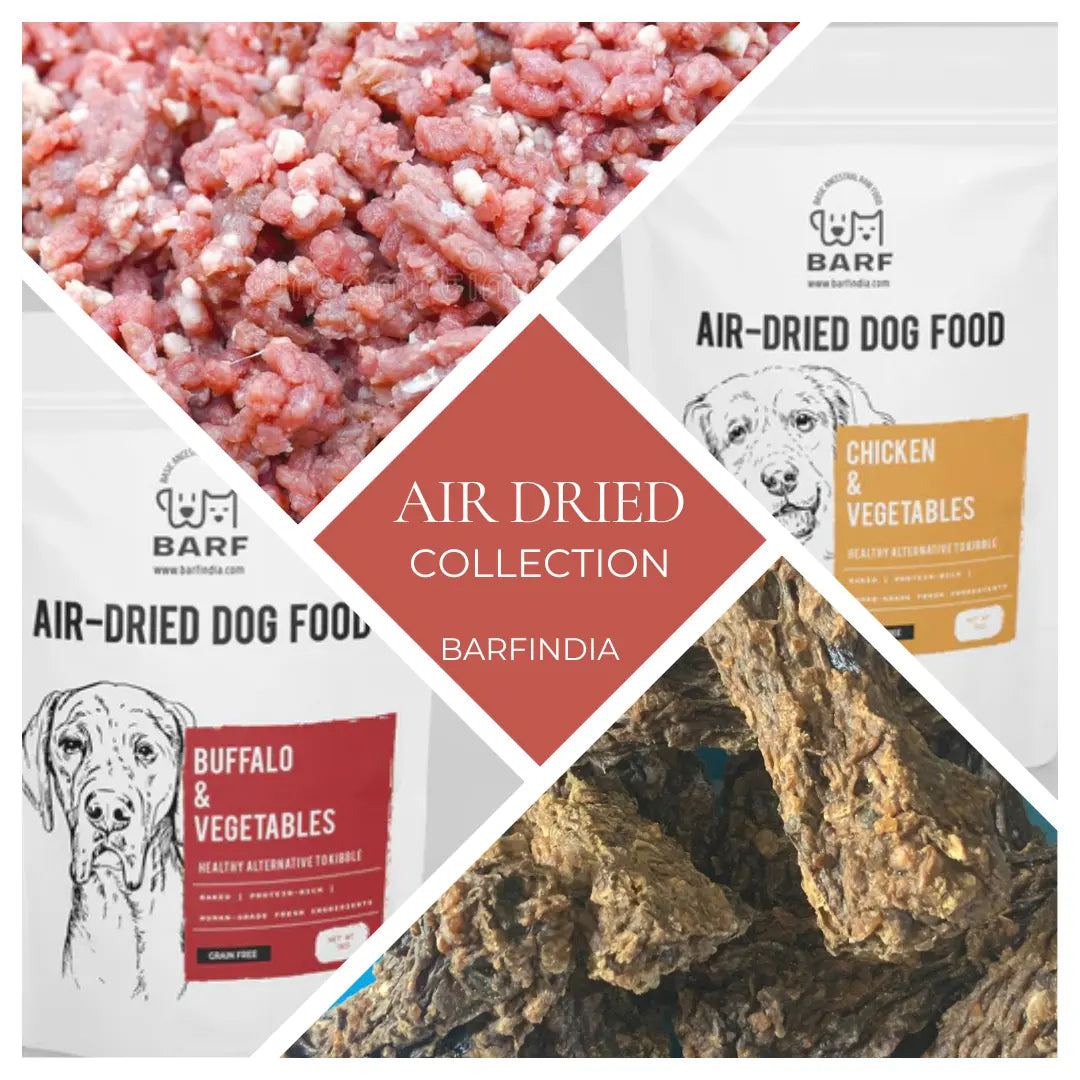
10 amazing ways you can use Apple Cider Vinegar for your Dog
Nivedita FernandesIntroduction
Apple Cider Vinegar (ACV) has long been touted as a natural remedy for various human health issues, but did you know it's equally beneficial for our furry friends? This versatile, all-natural product can be a game-changer in your dog’s health and wellness routine. From treating ear infections to repelling fleas and promoting better digestion, Apple Cider Vinegar for dogs is a safe and effective solution. In this comprehensive guide, we'll explore 10 amazing ways to incorporate ACV into your dog's care regimen.
What Makes Apple Cider Vinegar Good for Dogs?
Apple Cider Vinegar is rich in acetic acid, vitamins, minerals, and enzymes that have numerous health benefits. It's an excellent antibacterial, antifungal, and antiviral agent, making it a powerful natural remedy for a wide range of canine health concerns. Furthermore, ACV is affordable, readily available, and easy to use, making it a must-have for dog owners looking to improve their pet’s well-being naturally.
1. Treating Ear Infections
Ear infections are common in dogs, and Apple Cider Vinegar can help clear mild infections effectively.
-
How to Use ACV for Ear Infections:
- Create a diluted solution using a 1:1 ratio of ACV and distilled water.
- Dip a cotton ball in the solution and gently clean your dog's ears, avoiding deep insertion.
- Repeat this process until the cotton ball comes out clean.
Note: Before cleaning, ensure the inside of the ear isn’t raw or inflamed, as ACV might cause stinging.
Benefits: ACV's antibacterial and antifungal properties help clear bacteria and yeast, ensuring a clean, infection-free ear.
2. Relieving Itchy Skin
Does your dog suffer from itchy, irritated skin? Apple Cider Vinegar can offer relief.
-
How to Use ACV for Itchy Skin:
- Mix 2-3 tablespoons of ACV with half a bucket of water.
- After bathing your dog, use the ACV solution as a final rinse, ensuring you avoid the eyes.
- Towel-dry your dog and allow the coat to air dry.
Benefits: The acidity of ACV helps restore the skin’s natural pH balance, alleviating itching and irritation.
3. Repelling Fleas and Ticks
Fleas and ticks are a nuisance for both dogs and their owners, but ACV acts as a natural repellent.
-
How to Use ACV for Fleas and Ticks:
- Create a 1:1 solution of ACV and water.
- Use a clean spray bottle to spray your dog before outdoor activities, avoiding the face.
- You can also add ACV to your dog's drinking water (1 teaspoon per 50 pounds of dog weight) to make their skin less appealing to pests.
Benefits: ACV's acidic nature repels fleas and ticks, keeping your dog itch-free without exposing them to harsh chemicals.
4. Treating Hot Spots
Hot spots can quickly escalate into painful, infected areas if not treated. ACV can help manage this condition effectively.
-
How to Use ACV for Hot Spots:
- Mix a 1:1 solution of ACV and water.
- Dip a cotton ball or sponge into the solution and gently dab the affected area.
- Repeat as needed, but avoid applying to raw or open skin.
Benefits: ACV's antibacterial and antifungal properties soothe inflammation and speed up healing.
5. Easing Arthritis Pain
Arthritis is a common issue in older dogs, and ACV can provide relief.
-
How to Use ACV for Arthritis:
- Apply a warm ACV compress to your dog’s joints or add 1 teaspoon of ACV per 50 pounds of body weight to their water or food daily.
Benefits: ACV helps break down calcium deposits around joints, providing pain relief and improving mobility.
6. Improving Digestion
ACV can boost your dog's digestion and overall health by promoting a balanced gut environment.
-
How to Use ACV for Digestion:
- Add 1 teaspoon of ACV per 50 pounds of dog weight to their food or water.
Benefits: ACV's natural probiotics support healthy digestion, reduce gas, and boost nutrient absorption.
7. Fighting Dandruff
Dandruff can be a sign of dry skin or an imbalance in your dog's coat. ACV can help restore shine and moisture.
-
How to Use ACV for Dandruff:
- After a bath, pour half a cup of undiluted ACV over your dog’s coat.
- Massage it into the fur, then rinse thoroughly with water.
Benefits: ACV restores the coat's natural oils, reducing dandruff and leaving your dog's fur shiny and healthy.
8. Strengthening Teeth and Nails
Regular use of ACV can promote stronger teeth and nails in dogs.
-
How to Use ACV for Dental Health:
- Add ACV to your dog’s water or food daily in small amounts (1 teaspoon per 50 pounds).
Benefits: The minerals in ACV, like calcium and potassium, contribute to stronger teeth and nails, reducing the risk of breakage.
9. Treating Mange
Mange is a skin condition caused by mites, leading to intense itching and hair loss. ACV can help control and cure mange naturally.
-
How to Use ACV for Mange:
- Apply undiluted ACV directly to the affected areas.
- Pat off excess moisture with a towel and allow the area to air dry.
Benefits: The acidity and antibacterial properties of ACV help kill mites and prevent the spread of mange.
10. Managing Urinary Tract Infections (UTIs)
UTIs can be painful for dogs, but ACV can help manage the condition.
-
How to Use ACV for UTIs:
- Add 1 teaspoon (small dogs), 1 tablespoon (medium dogs), or 2 tablespoons (large dogs) of ACV to your dog’s water or food daily.
- Ensure your dog has access to fresh water.
Benefits: ACV's antibacterial properties help clear bacteria from the urinary tract, relieving symptoms of UTI.
Safety Precautions When Using Apple Cider Vinegar for Dogs
While Apple Cider Vinegar is generally safe, it’s essential to use it correctly:
- Always Dilute ACV: Never apply undiluted ACV directly to your dog’s skin or sensitive areas, as it can cause irritation.
- Monitor Your Dog: Observe your dog for any adverse reactions, especially if introducing ACV for the first time.
- Consult Your Veterinarian: Before adding ACV to your dog's diet, consult with your veterinarian, especially if your dog has pre-existing health conditions.
Alternative Uses of Apple Cider Vinegar for Dogs
- Cleaning Dog Bedding: Mix a solution of 1 part ACV and 3 parts water to clean and disinfect your dog's bedding.
- Cleaning Ears: Use a diluted ACV solution to gently clean your dog's ears, preventing ear infections.
Frequently Asked Questions About Apple Cider Vinegar for Dogs
Q1. Is Apple Cider Vinegar safe for all dogs? Yes, but always use diluted ACV and consult your vet, especially if your dog has any health concerns.
Q2. Can I give Apple Cider Vinegar to puppies? It's best to consult with your veterinarian before using ACV for puppies.
Q3. How often can I use Apple Cider Vinegar on my dog? Frequency depends on the purpose. For instance, use it once a week for ear cleaning, while adding it to water can be done daily in small amounts.
Conclusion
Apple Cider Vinegar is an incredibly versatile and effective remedy for many canine health concerns. From treating ear infections and skin issues to repelling fleas and promoting better digestion, Apple Cider Vinegar for dogs is a natural, affordable, and accessible solution for pet owners. By incorporating ACV into your dog’s care routine, you can address various health issues and improve their overall well-being.
However, always remember to use ACV in moderation, and consult your veterinarian to ensure it’s suitable for your dog’s specific needs. With proper usage, Apple Cider Vinegar can be a fantastic addition to your dog’s health regimen, providing numerous benefits that will keep your furry friend happy and healthy for years to come.
Agreed there isn’t a lot of science behind the use of ACV in dogs, and it isn’t a cure for all ailments. However, since it isn’t toxic, you can safely use these remedies without worrying about side effects. As with any alternate therapy, the result could be slow. And we also recommend checking with your vet for any serious issues that your dog could have. Remember, should you decide to use apple cider vinegar on your dogs, always dilute it with water when applying it.



